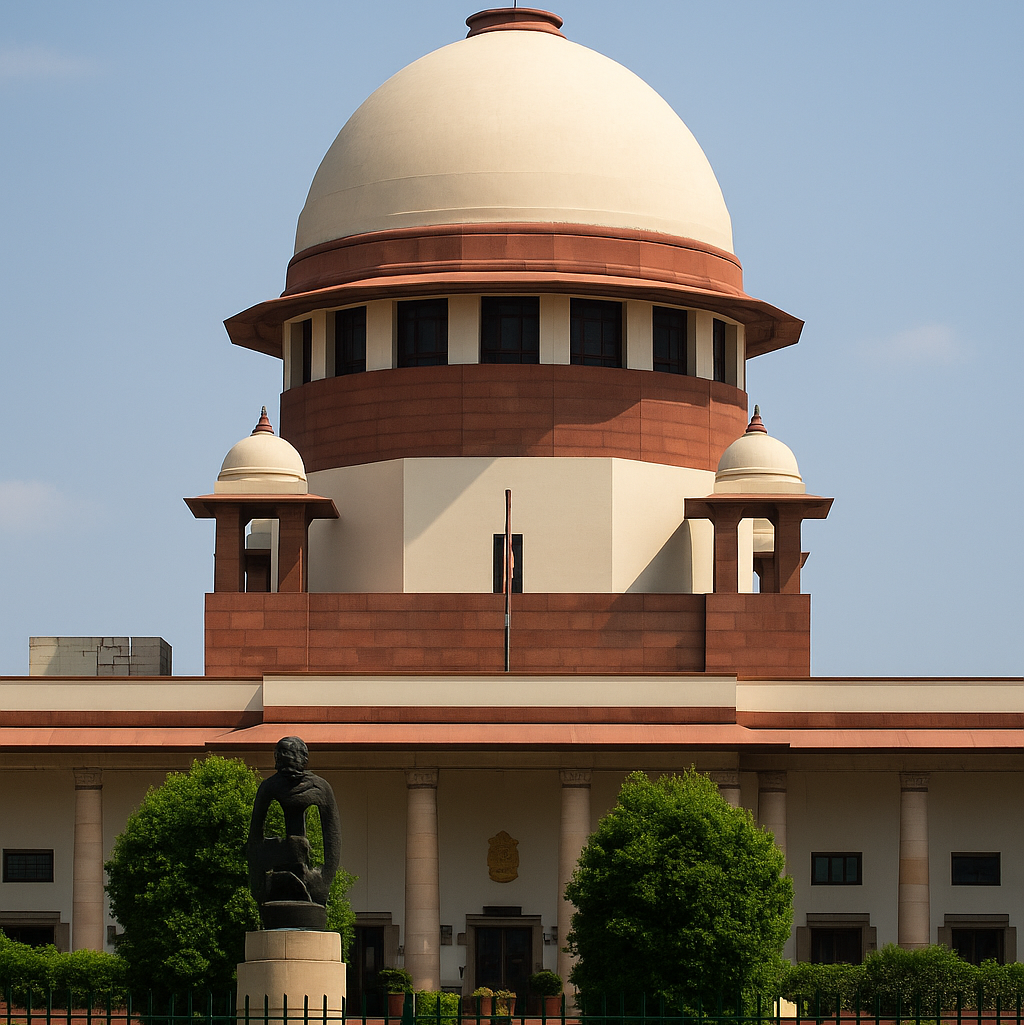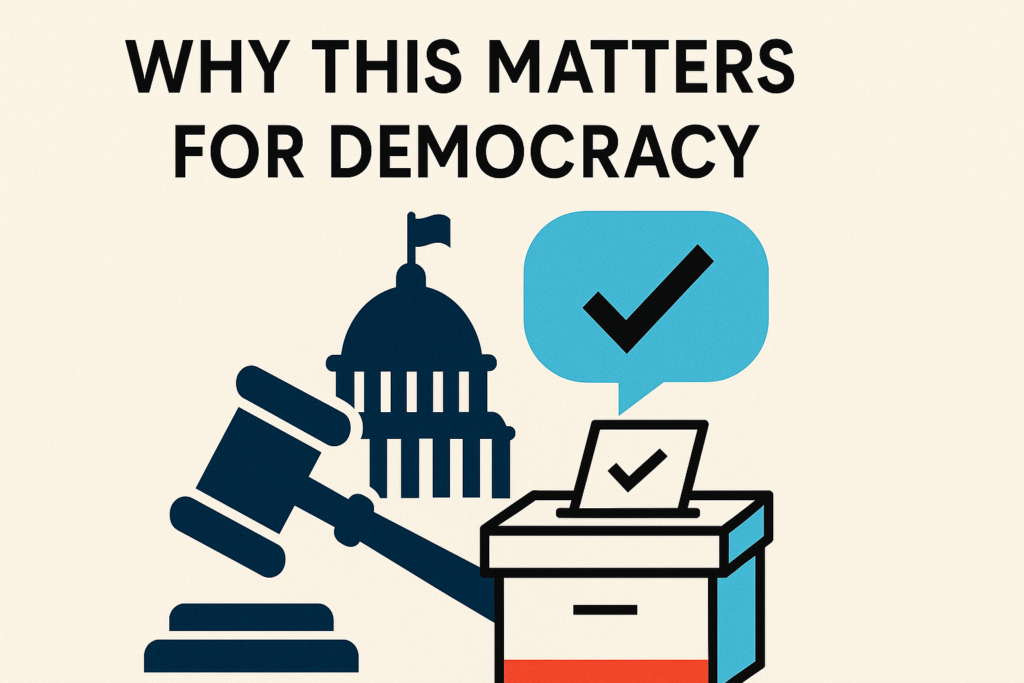
As India heads toward the 2025 general elections, all eyes are not just on political parties, but also on the judiciary. The Supreme Court of India, which often plays a key role in shaping the political landscape, recently delivered a ruling that could have a significant impact on how the upcoming elections unfold. While the legal language may seem technical, its effects are anything but. From influencing voter trust to setting new precedents, here’s how this decision might change the game in 2025.
📜 The Ruling That Sparked Debate
In April 2025, the Supreme Court delivered a landmark judgment involving the autonomy and accountability of the Election Commission of India (ECI). The court ruled that any future appointments of Election Commissioners must be carried out by a neutral selection panel consisting of the Prime Minister, the Leader of the Opposition, and the Chief Justice of India.
Until now, the executive had sole discretion over appointments, leading to concerns about bias or lack of independence. This new ruling aims to safeguard the neutrality of the Election Commission, which plays a pivotal role during elections, from voter registration to vote counting.
🧭 Why This Matters for Democracy

At the heart of this ruling is a simple but powerful idea: a free and fair election cannot exist without a neutral referee. The Election Commission is meant to be that referee, but when its officials are chosen solely by the ruling government, the risk of bias increases—or at least, public trust decreases.
By ensuring a more balanced appointment process, the Supreme Court is essentially saying:
“If the game of democracy is to be fair, the umpire must be trusted by all sides.”
This may seem like an administrative detail, but it could deeply impact how elections are perceived and conducted in 2025.
⚖️ What This Means for the Election Commission
The ruling adds new layers of transparency and checks and balances to the system. With more balanced appointments, the Election Commission may feel more empowered to:
- Enforce the Model Code of Conduct more strictly
- Take action against hate speech or political misconduct
- Investigate allegations of voter list manipulation or tampering
- Ensure equal campaigning opportunities for all parties
In short, the Election Commission may be able to do its job without fear or favor—which is exactly what democracy needs right now.
🗳️ The Bigger Picture: Trust in the System
In recent years, several opposition leaders—including Rahul Gandhi—have openly criticized the Election Commission, accusing it of bias or failure to act against ruling parties. This ruling by the Supreme Court directly addresses those concerns by making the appointment process more democratic.
If implemented effectively, it can restore public faith in the electoral system, especially among young and first-time voters who may feel disillusioned with politics.
🧩 Could This Affect the 2025 Election Outcome?
Here’s where things get interesting. If the Election Commission becomes more independent and assertive, it could lead to:
- Stricter oversight on election spending and campaigning
- Faster action against fake news and misinformation
- Better regulation of social media use during elections
- A more level playing field between the ruling party and opposition
This doesn’t mean the ruling party will lose power—but it reduces unfair advantages, making elections more competitive and representative.
🏛️ Not Just One Ruling: The Court’s Increasing Role in Elections
This ruling is part of a broader trend. The Supreme Court has, over the years, stepped in to protect electoral integrity:
- Ordering VVPAT slips to be verified in past elections
- Hearing PILs related to EVM tampering
- Reviewing election disqualification rules for convicted politicians
All of these actions show that the judiciary is becoming an active guardian of democracy, especially when institutions are under pressure or public confidence is low.
🤔 Challenges Ahead: Will the Ruling Be Implemented?
While the judgment is a huge win on paper, implementation is key. The government may:
- Delay the formation of the new appointment panel
- Pass legislation to dilute the ruling
- Interpret the verdict in a limited way
Citizens, civil society, and media will need to hold the government accountable to ensure this isn’t just symbolic change.
🧠 Final Thoughts: A Turning Point?
The Supreme Court’s ruling on Election Commission appointments could turn out to be one of the most influential political decisions of 2025. It may not dominate news cycles like rallies or manifestos, but its impact on the fairness, credibility, and transparency of elections cannot be overstated.
As voters, it’s crucial we understand not just who’s standing for election, but who’s protecting the process itself. And right now, it seems the Supreme Court is doing just that.
Official Website: www.sci.gov.in

